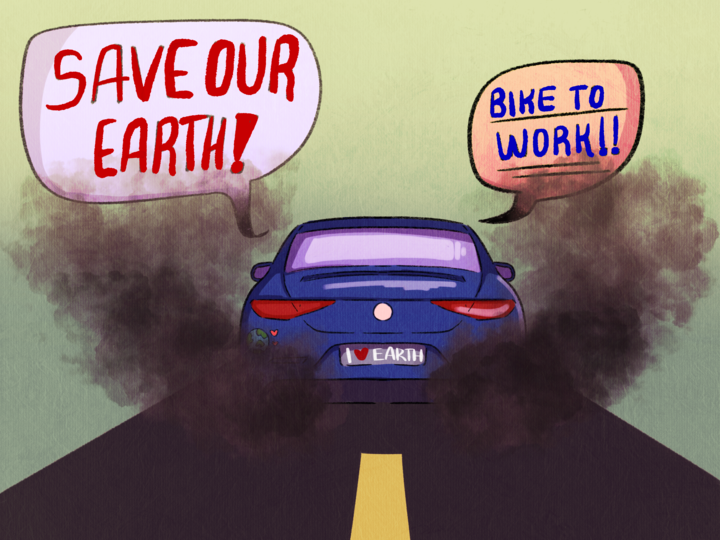To welcome the holiday season this November, the media filled with the red cup controversy. Christians all over the nation were upset about Starbucks releasing a solid red cup that didn’t acknowledge Christmas.
At the head of this controversy, Joshua Feuerstein accused Starbucks of “hating Jesus” for not adorning their cups with symbols and for, according to him, not allowing employees to say merry Christmas.
“I think it’s better to wish for happy holidays than a merry Christmas because not everyone celebrates Christmas,” said Ruby Najera, a New York & Company retail employee, explaining that it’s all about being inclusive.
Being respectful of others is part of the true meaning of Christmas, so this silly argument serves to remind us of the hypocrisy within our materialistic culture during the holidays.
We have chosen to use our different religious beliefs to turn people against each other, rather than actually put our so-called morals to good use.
According to the National Alliance to End Homelessness, there were 578,424 people in the U.S. experiencing homelessness in January 2014.
The National Center for Children in Poverty also reported that more than 16 million children in the U.S. live below the poverty level.
Instead of trying to address these issues, we are wasting our values arguing over the image of a cup.
Even though the chaos over this cup is the most obvious this season, it isn’t the only place in which we find hypocrisy during the holiday season.
In the U.S., we dedicate an entire day to express how thankful we are for all we have. We hold big dinners with loved ones and talk about how lucky one is to be able to put so much food on the table.
Yet the very next day, we don’t use our hands to help those families who can’t afford a meal. We would much rather use our hands to play tug-of-war over a $500 handbag that is on sale for $450.
To show the drastic measures that people have reached on Black Friday, a website called Black Friday Death Count, has record of deaths and injuries caused during Black Friday shopping since 2006. The death count includes that of 34-year-old Jdimytai Damour who was trampled to death in a stampede while working in maintenance at a Wal-Mart in Long Island, New York,in 2008.
So on Thanksgiving Day, we give thanks for all we have, but it’s part of our culture to fight to have even more the very next day — even if it means killing.
Later on in December — a month that many would argue is about giving back and spreading love — we spend most of our time stressing over what gifts we will buy for everyone we know.
Our materialistic culture has made it so that the true value of the holiday season is buying the perfect gift for what is supposed to be a great price.
We contradict our own morals, and yet, we have the audacity to be offended when a business doesn’t acknowledge one’s religious beliefs.
Isn’t the holiday season supposed to be about lending a hand and spreading love? Not in American society, apparently.
If people want to complain about businesses not acknowledging their religious holidays and still juicing them from every cent they have during the winter season, then it’s time they actually practiced what they preach.
There are other problems that are more important to address during this time of year.
Even addressing the issue that some stores are beginning Black Friday shopping on Thursday would be much more important to focus on for those employees that can’t have a nice Thanksgiving at home.
Follow Genesis Lara on Twitter.








